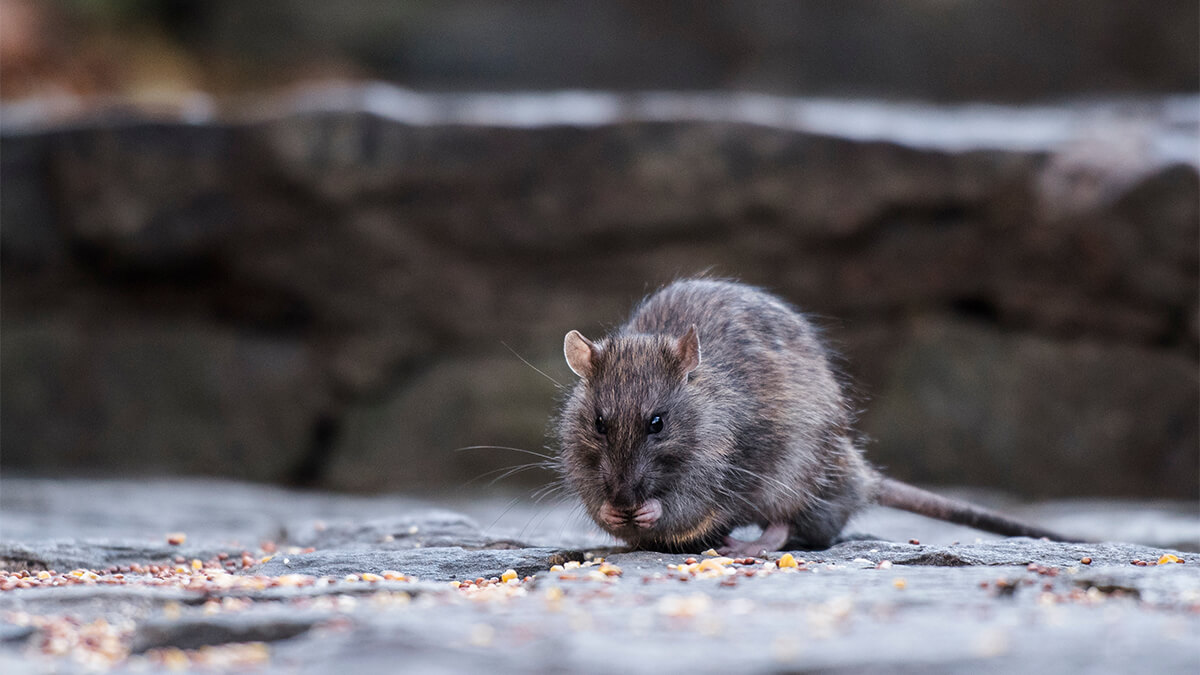What Food Attracts Rodents to Your Home

What draws rodents into your home? It's what draws them to every place. Food! When it comes to two of the most common house pests - rats and mice, it's as much about practicality and nutrition as it is about taste. So, we've decided to put together a list of foods that these rodents favour the most.
Having in mind that rats and mice have better noses than even dogs, let's see what do they like to eat!
Grains & seeds
Grains and seeds are the most natural rodent food. It doesn’t matter if they are dried and stored or fresh off the plant. In rural settings, mice and rats seek out storage spaces or help themselves to what’s in the field.
In the suburban environment, rats and mice may burglarise bird feeders or attack your flowerbeds. Your cupboards aren’t safe either. These rodents can and will attack any baking ingredients, oat and cereal they can find in your home if presented with an opportunity.
Nuts
Nuts are another of mice and rats' all-time favourite things to eat. Rich in protein, walnuts, almonds, peanuts, hazelnuts and other types of nuts are so highly nutritious for these rodents that they can subsist entirely on them.
Plants
While not as tasty as seeds and nuts, plants are often used as food, too. However, this is more or less a starvation safety net for rodents. While preferring anything more filling in general, especially hungry mice or rats will go for a nibble on anything from grass to tree bark.
They are especially fond of vulnerable seedlings because of their tender structure. This is a rare occasion in suburban areas if any other sources of food are readily available. Still, keep an eye on your plants for signs of nibbling.
Explore further: What Do Possums Eat?
Fruit & berries
Probably a favourite food for all kinds of rodents. They are also the strongest magnets for both rats and mice, thanks to the incredible sense of smell these two species have. Decomposing fruit emits a much stronger sweet smell than seeds and nuts.
If you have any berry bushes or fruit trees in your yard, be sure to harvest them and not leave any fallen fruit lying around. Same goes for keeping fruit remains in the rubbish.
Salt
You may not have expected this, but salt is actually a big attraction for rodents. They would consume as much as possible. It helps them retain water for longer, and apparently, they like the taste of salty foods. Who knew!
Meat
Rodents are omnivores and as such aren’t opposed to some meat in their diet. Rats and mice are generally opportunistic in regards to meat, snacking on it if they come across it readily. However, active hunting is not typical behaviour for them.
Actually, rats are more likely to resort to meat consumption, specifically insects and other small animals like mice. Rats are also more partial to meat and can eat any rotten fish, poultry and red meat from rubbish disposal containers and spots.
Pet food
If your pets are eating it, be sure that rodents will have an interest in it as well. It doesn’t matter whether it’s cat food, dog food, or even fish food. It also tends to attract them quite well, because of its strong scent and the fact it’s often kept in non-sealed containers and bags.
If you keep animal food around your house, we suggest you seal it in an airtight container or at least place it so the little critters can’t find or reach it.
Rubbish
This should be a no-brainer. Both rats and mice love your rubbish bin. It’s a gold mine of potential food for them. The things that especially draw them to the rubbish pile are the ones that smell the strongest while decomposing - cheese, bread, fruit and veg, and meat.
To battle this, you need a strong metal bin (they can chew through plastic and would with ease) with a heavy lid that's hard to open.
Non-food items
If hungry enough rodents can even eat conventionally non-edible materials like leather and fabric. They typically give a nibble to everything that seems even remotely edible to them. You know, to try it. Sometimes even the plastic insulation of electric cables can look like a tasty snack. Go figure.
Now you know what rodents like to eat and what is most likely to attack them to your house. As you can see, both rats and mice have a similar diet, which means that you can use most of the things on the list as bait to trap both of them. Still, for larger infestation, you'll probably need some extra help with pest control, as sheltered places with free food is another one of these rodents' favourites.